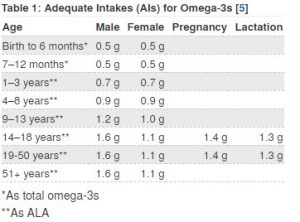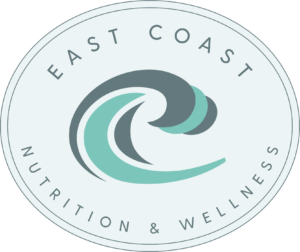![]() (732) 475-3105
(732) 475-3105
![]() Emily@eastcoastnutritionandwellness.com
Emily@eastcoastnutritionandwellness.com
1648 Beaver Dam Road Point Pleasant, NJ, 08742
The Hype Over Omega-3s
1 min read • October 17, 2020
Omega 3 fatty acids are important for your heart, brain, and eyes.
Omega 3 fatty acids are a type of essential polyunsaturated fat (the good kind), meaning that they must be consumed in the diet as the body cannot naturally produce them. The 3 omega 3 fatty acids are alpha-linolenic acid (ALA), eicosapentaenoic acid (EPA), and docosahexaenoic acid (DHA).
Omega 3 fatty acids are important for your heart, brain, and eyes. Omega 3s have been proven to lower blood pressure, reduce the risk of developing an irregular heartbeat, decrease triglyceride levels, and slow plaque buildup in your arteries, improving the function of the blood vessels, resulting in an overall decrease in the risk of coronary heart disease or cardiac diseases.
DHA, a type of omega 3, is highly concentrated in your brain and eyes. Omega 3s play a large role in brain health, cognition, memory, and may prevent cognitive decline. Omega 3s have also been recognized as a potential treatment in those with major depressive disorder and traumatic brain injury.

It is recommended to consume two 4 ounce servings of oily fish per week
As omega 3’s are prevalent in brain and eye development, motor function development, and visual development, consuming omega 3s are important during pregnancy for proper fetal development. Omega 3 consumption during pregnancy has also shown to reduce the risk of low birth weight and risk of preterm birth.
In order to consume the recommended amount of omega 3s, it is encouraged to consume two 4 ounce servings of oily fish per week including salmon, mackerel, tuna, herring, trout, and sardines. Non fish foods, such as flaxseed, chia seeds, walnuts, and soybeans are also high in omega 3 content. If you are unable to consume adequate amounts of omega 3 through food, over the counter omega 3 supplements are great alternatives!
Share This Post







